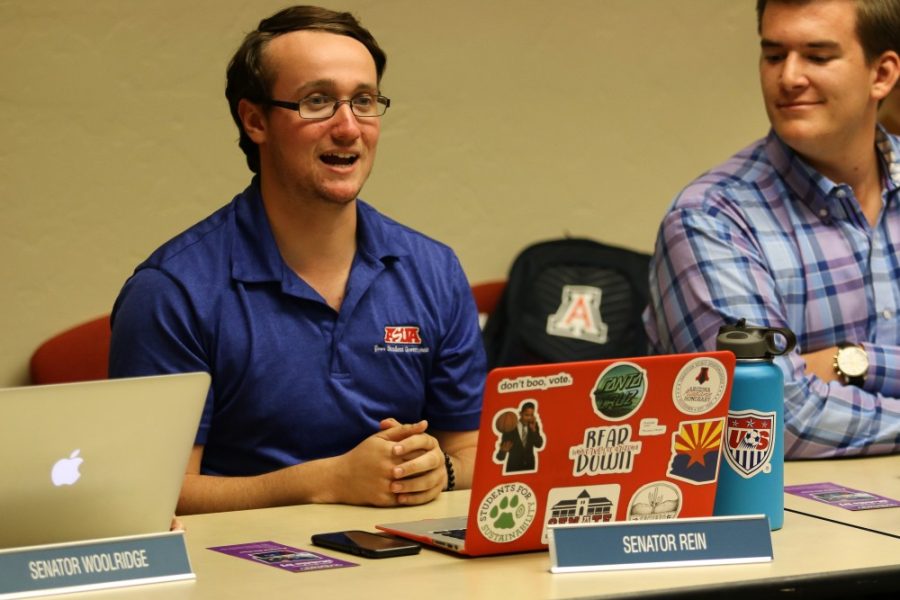The Associated Students of the University of Arizona voted to fund Pride Alliance in the amount of $2,000 Wednesday, Nov. 29. The funding was not voted on without the senate being reminded of how they treated Pride Alliance at the last senate meeting.
On Nov. 15, Pride Alliance asked ASUA for funding to send students to the Creating Change 2018 Conference in Washington, D.C. Kyrra Kahler, a co-director of Pride Alliance, spoke on what she and her co-director perceived as unfair treatment to them by some ASUA senators.
“During this time, she was asked questions for about 29 minutes,” Kahler said. “With questions asking about last year’s Pride budget, this year’s budget, our projected spending and other information that was above and beyond what was asked of other groups that have asked for funding this year.”
RELATED: President Robbins outlines UA’s future to regents
Kahler addressed the senate alone because her co-director did not feel comfortable addressing the senate after the last meeting. This treatment was noted by Emily Runnion, Parliamentarian of ASUA, who spoke out about it at the end of the meeting.
“The point that the representative made was absolutely true,” Runnion said. “They were not treated with respect. It was really terrible.”
Runnion said it was cowardly of her to not speak up about it at the last meeting, which is why she spoke up on Wednesday.
She said that no other group that has asked ASUA for funding this year was treated the way Pride Alliance was, and she told her fellow senators that they should have apologized, even if they were not the ones who did harm.
Runnion further explained why this treatment was not OK by remembering her predecessor, Harper Black.
“They were the parliamentarian before me. They were a gender-queer individual who committed suicide on March 7 of this year,” Runnion said. “So this is not an issue that this group of people has the luxury of ignoring and treating as trivial. This is something that should be taken seriously.”
Election Code changes
ASUA Elections Commissioner Marlon Freeman presented the senate with changes to the ASUA elections code. Among the changes were clarified definitions, a new three-class system and new rules on endorsements.
The changes are still in the drafting phase due to complications in the language, so they will be voten on at the next ASUA meeting.
Anthony Salas from the Graduate and Professional Student Council informed the senate that the GPSC general council passed an “elections reform amendment” at their meeting on Tuesday, Nov. 22.
“It’s a precursor that allows us to reform the elections code,” Salas said. “But it was a very big legislative victory, and it was one that me and my colleague helped draft, so we feel pretty good about that.”
RELATED: GPSC Notebook Nov. 21: Council changes constitution
Salas said he hopes this new amendment will allow GPSC to really overhaul their constitution, bylaws and elections code.
The UA has begun its strategic plan and will be working with ASUA, according to ASUA President Matt Lubisich.
“They’ll be working with us, as ASUA, to identify key students for focus groups to see what they want to see out from a new university strategic plan. It’s going to be better than ever,” Lubisich said.
Follow Jordan Williams on Twitter









